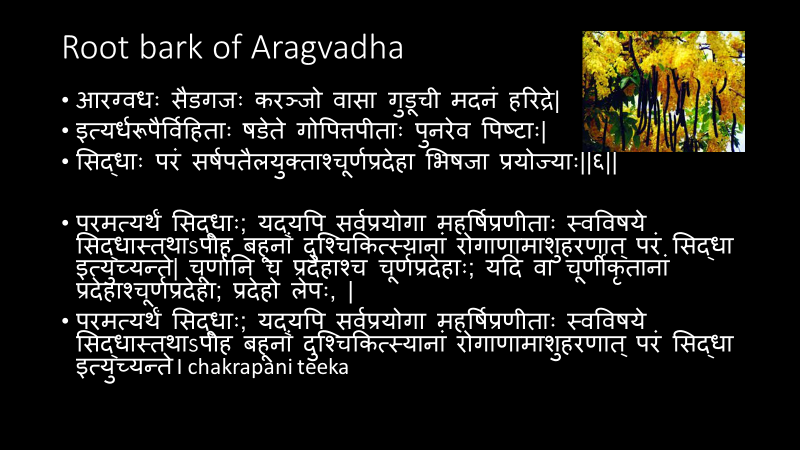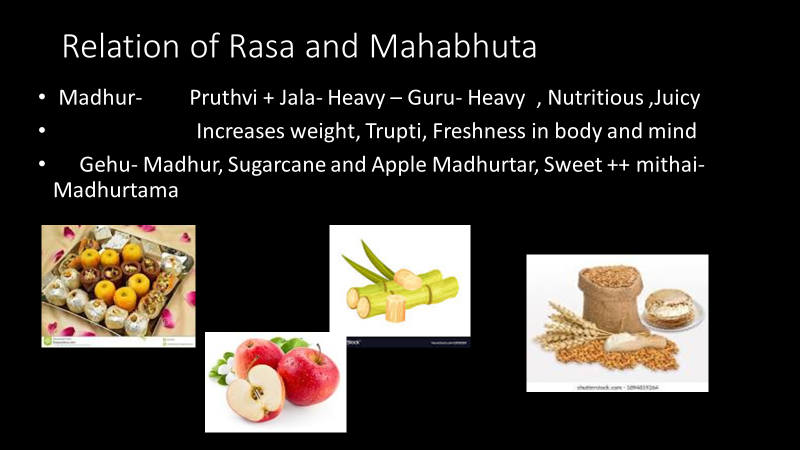Preventive And Curative aspects of Netraroga
Dr Mrs Madhuri Prasad Bhide
Professor and HOD Samhita Department
College Of Ayurveda, BVDU, Pune
(mpbayu@gmail.com)
Netra is the foremost important and vital Indriya
and Netragolak is foremost important and vital
organ in body. One has to avoid
its Dushtikarak hetus and
keep it sound.
There are
two types of Netra roga - 1)
Abhyantar Doshaj
2) Bahya Abhighataj
Abhishyanda
, vata and Pitta are the three major hetu in cause of Netraroga.
Sushrut has
cited some of major dietic factors fordoshagamitwa in netra vyadhi-
Shukta
,kanji,Kulattha,masha, lavan Ahar – Su U-1/26
उष्णाभितप्तस्य जलप्रवेशाद्दूरेक्षणात् स्वप्नविपर्ययाच्च |
प्रसक्तसंरोदनकोपशोकक्लेशाभिघातादतिमैथुनाच्च ||२६||
शुक्तारनालाम्लकुलत्थमाषनिषेवणाद्वेगविनिग्रहाच्च |
स्वेदादथो धूमनिषेवणाच्च छर्देर्विघाताद्वमनातियोगात् |
बाष्पग्रहात् सूक्ष्मनिरीक्षणाच्च नेत्रे विकारान् जनयन्ति दोषाः ||२७||
Some
specific Vihar create Doshas –
1. Swapna Viparyaya- increase Kapha Pitta
2. Ushna abhitapta sya Jalapraveshat- Pitta
3. Satat Durekshan- Strain and
Vataprakopa
4. Sweda Sevan , Dhuma sevan- Pitta
prakopa
5. Vaman Atiyoga- Vaatprakopa
6. Prasakta Rodan, Kopa ,Shoka-
Vaatprakopa
7. Sukshma Nirikshan Atiyoga- Srain and
Vaatprakopa
Abhishyandi Ahar-
प्रायेण सर्वे नयनामयास्तु भवन्त्यभिष्यन्दनिमित्तमूलाः |
तस्मादभिष्यन्दमुदीर्यमाणमुपाचरेदाशु हिताय धीमान् ||५|| Su U 6/5
निमित्तशब्दाद्दुष्टा दोषा दोषकोपनानि च सङ्गृह्यन्ते| Dalhan
Abhighataj -
अभ्याहते तु नयने बहुधा नराणां संरम्भरागतुमुलासु रुजासु धीमान् |
नस्यास्यलेपपरिषेचनतर्पणाद्यमुक्तं पुनः क्षतजपित्तजशूलपथ्यम् ||३||
दृष्टिप्रसादजननं विधिमाशु कुर्यात् स्निग्धैर्हिमैश्च मधुरैश्च तथा प्रयोगैः |४| Su U 19/3
तीक्ष्णाञ्जनातिपरिक्लिष्टेषु नेत्रेषु वातातपधूमरजव्यापारकीटमक्षिकामशकस्पर्शादिभिरभिहतेषु सलिलक्रीडाजागरणलङ्घनाप्लुताभिद्रुतेषु | (Dalhan)
Some Netraj Vyadhi are abhyantar doshaj
and some are Abhighataj. The Abhighataj vyadhi attack that organ which is
Durbal due to either temporary condition of tikshna Netra Shodhan or due to
jagaran, water playlike swimming. It may get affected due to some foreign body
such as House fly or the dust. The
abhighat badly affects the persons exposed to the Kha -vaigunyakar hetu such as
shoka, crying, stress on eyes .Consider the condition as Vata Pittaj and treat
it as Kshataj. Hence after external application of Parishechan administer him
the Snigdha ahar.
Home Remedy as immediate cure-
अभ्याहतं नयनमीषदथास्यबाष्पसंस्वेदितं भवति तन्निरुजं क्षणेन ||५||
निबन्धसङ्ग्रह व्याख्या (डल्हण कृत)
इदानीं किञ्चिदभ्याहतनयने विशेषचिकित्सितमाह- अभ्याहतमित्यादि| आस्यबाष्पं मुखफूत्कारजनितोष्मा||५||
Time span for the urgent treatment-
सद्योहते नयन एष विधिस्तदूर्ध्वं स्यन्देरितो भवति दोषमवेक्ष्य कार्यः |५|
सप्ताहादर्वागेव कार्यस्तदूर्ध्वमन्यो विधिरित्याह- सद्योहत इत्यादि| सद्योहते सप्ताहादर्वागेवेत्यर्थः|
The treatment of Vata-pitta and kshat should be done
within 7 days . Upto 7 days it is called as Sadyohat. If the Patient approaches
after 7 days treat him as Vatabhishyanda Disorder.
तदूर्ध्वं सप्ताहादूर्ध्वम्| स्यन्देरितो वाताभिष्यन्दोक्तो विधिः|५|- निबन्धसङ्ग्रह व्याख्या (डल्हण कृत)
Treatment-
“त्रिफलाघृतं व्याधिप्रत्यनीकं, वातहरदेवदार्वादिसिद्धं तु दोषप्रत्यनीकं, वातस्यैव पित्तानुबन्धे सति विदारिगन्धादिसिद्धं”|
1.Vyadhipratyanik- Triphala Ghrita
2-Doshapratyanik- Vataghna- Devadarvrvyadhi Ghrut,
Pittanubandhi- Vidarigandhadi, kakolyadi Ghruta.
Ghritapaan in Vatapradhan Vyadhi and vatabhishyanda
after meals is an excellent treatment for netraBrinhan.
तथा चोपरि भक्तस्य सर्पिःपानं(ने)प्रशस्यते [१] ||८||
त्रिफलाक्वाथसंसिद्धं केवलं जीर्णमेव वा |
सिद्धं वातहरैः क्षीरं प्रथमेन गणेन वा ||९||
स्नेहास्तैलाद्विना सिद्धा वातघ्नैस्तर्पणे हिताः |१०| Su U -9/8-9
Post Operative care-
After an eye operative for example the excision of
vartma Arbuda or Vartma Arsha patient should avoid exposure to dust , smoke
upto one month. Should tie the
bandage to avoid the exposure to dust.
Post Raktamokshan Care-
In some pitta raktaj Vyadhi Raktamokshan is done.
After Raktamokshan to avoid some Vaat vriddhi some care should be taken.
घृतेनाभ्यज्य नयनं वस्त्रपट्टेन वेष्टयेत् |
ततो गृहे निराबाधे शयीतोत्तान एव च ||६७||
उद्गारकासक्षवथुष्ठीवनोत्कम्पनानि [१] च |
तत्कालं नाचरेदूर्ध्वं यन्त्रणा स्नेहपीतवत् ||६८|| Su. U. 17/67
One should bandage the eyes with abundant ghrita and
should sleep Uttan means in Supine position to avoid any undue pressure on
eyes.
Should avoid Forceful Udgar, Coughing, Spitting immediately.
At least for ten days.Diet
should be laghu and ishat snigdha.
After every 3 days should wash eye with Vataghna
Kashay and should do Swedan.
Ref- Su U
17/70
Virechan -
Virechan is the best
solution for removal of Doshas which are stable in eyeball The removal of Doshas correct the
pathology in eyeball.
The Erandamula tail or Panchangmula Taila blended with milk is
specially advised for Virechan having Vataj vyadhi. For Pittaj vyadhi Triphala
Ghrita is best for Virechan.For Kaphaj Vyadhi Trivrut siddha ghrita or oil is
best for Virechan.
1 पयोविमिश्रं पवनोद्भवे हितं वदन्ति पञ्चाङ्गुलतैलमेव तु |
2. भवेद्धृतं त्रैफलमेव शोधनं विशेषतः शोणितपित्तरोगयोः ||२९||
3. त्रिवृद्विरेकः कफजे प्रशस्यते त्रिदोषजे तैलमुशन्ति तत्कृतम् |३०| Su U 17-29
Ahar advised for Netravyadhi-
शतावरीपायस एव केवलस्तथा कृतो वाऽऽमलकेषु पायसः |
प्रभूतसर्पिस्त्रिफलोदकोत्तरो यवौदनो वा तिमिरं व्यपोहति ||४९|| Su U 17-49
जीवन्तिशाकं सुनिषण्णकं च सतण्डुलीयं वरवास्तुकं च |
चिल्ली तथा मूलकपोतिका च दृष्टेर्हितं शाकुनजाङ्गलं च || Su U
17-50
पटोलकर्कोटककारवेल्लवार्ताकुतर्कारिकरीरजानि |
शाकानि शिग्र्वार्तगलानि चैव हितानी दृष्टेर्घृतसाधितानि ||५१||
1.
Shatavari Payas- Shatavarisiddha kshira
orally is best Rasayan for all membranes
and parts of eyeball.
2.
Jivanti, Bala-mulakam, Flesh of birds,
Jangal Mamasa, Patol, Karavellak, Vartak, Shigru, Artagala-Nila Sahachara are
good for maintainance of health in eyeball.
3.
Plain Ghrita and Siddha Ghrita
4.
Navaneeta
Thus a lot of guidelines are given
in Sushruta Uttartantra for ophthalmic care.
Conclusive Remarks-
1. Do not consider the
eyeball and Chakshurindriya as separate entity other than the whole Sharir.
2. Physiological variations
alter the strength of eyes. Shirosnana, Nidrakshaya and Ajrna alter the normalcy of eyes for time being.
3. Removal of Doshas by
Shodhan and Shaman from Body is the Major remedy.
4. After Sarvadehik Shodhan and Shirovirechan can do
the Netra-Shodhan and Shaman by Anjanas , Aschotan , Tarpan, Putapak, Seka for
various ophthalmic disorders.
5. Shastrasaadhya Vyadhis
and Awasthas are specifically mentioned by Sushrut.
6. Some chromosomal
(genetic) deformities and congenital anomalies which are considered as
incurable like Naktandhata are curable (Sadhya)
according to Ayurveda.
7. Post Operative care and
Diet are vital in eye care.
8. Sushruta has not
explained any specific Guti or churna or Asav –Arishta in Uttaratantra for eye
remedy.Majorly Siddha Kshiras and Siddha
Ghritas are recommended in diseases.



























